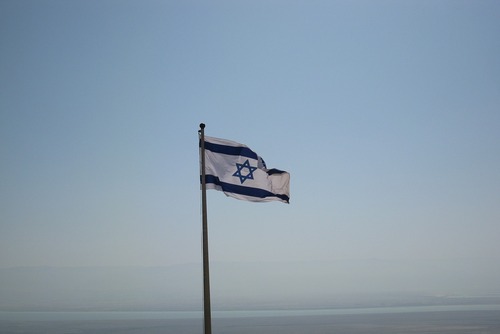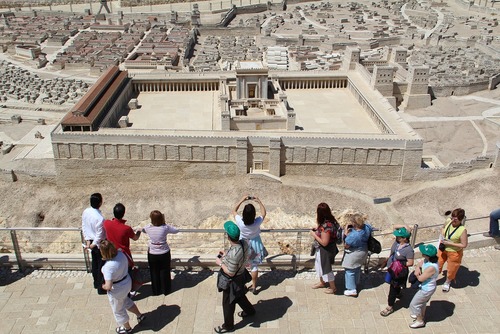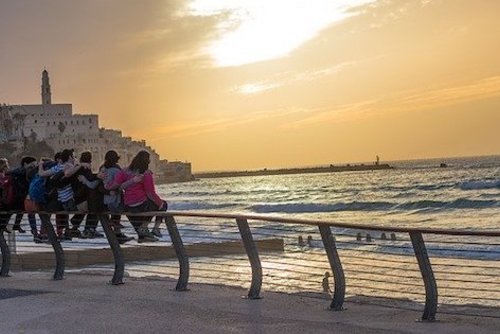Israel has plenty to offer Jewish and non-religious travelers, and first-time visits can be overwhelming if you don't know what to expect.
In this article we provide some top tips for Jewish Americans planning their first trip to Israel.
1. Where to Go
There are so many places to go in Israel, from ancient historical cities to beautiful beach resorts. Adding places to your itinerary like Jerusalem, Tel Aviv, Eilat and Haifa are recommended. Be sure to give yourself lots of time to research your itinerary and things to do, as Israel isn't the largest country in the world, you could spend weeks and still not discover all the highlights..
2. Take a Masa Israeli Trip
One of the best ways to get all the basics and then some expertise is by taking a Masa trip.
The program offers a variety of affordable, easy-to-book weeklong programs that cover everything from history to travel tips, cuisine, and more. According to news from The Jerusalem Post, Masa has served more than 170,000 people from around 60 countries since its foundation.
You can also choose your length and subject matter if you have something more specific in mind. There's no better way to make your first trip as smooth as possible than with this comprehensive service that will help you plan out each day easily.
Masa Israeli touring company offers several different tour packages for Israel. While in Israel, you can try authentic dishes such as falafel, hummus, shakshuka, and much more. You will also get the opportunity to visit the Tel Aviv beach while enjoying great food and drinks with your friends or family.
3. Remember Everything Shuts Down on Shabbat
To put it bluntly, everything shuts down on Shabbat. The country is essentially turned off, and many Israelis will spend the day at synagogues or one of the many open public parks for people to gather and enjoy family time.
While religious observance varies from person to person, most Jews follow traditional Shabbat rules, including refraining from using electricity and driving. There are certain exceptions for medical emergencies, but otherwise, you should plan your itinerary accordingly.
4. Learn a Few Words in Hebrew
Learning a few words of Hebrew is not necessary, but it can be helpful.
Hebrew is fairly easy to pick up, and you can use many useful phrases when visiting Israel. In addition, you can learn some Hebrew before you go or while you're there. Many of the most commonly used words in Hebrew include "shalom," which means peace, "mazel tov," which translates as congratulations, and "boker tov," which translates as good morning.
Learning basic words will be handy when asking for directions or ordering food from a menu. For example: if desiring dairy-free food, remember that the word for dairy-free is "cholov stam" (kosher) or "meat-esrei" (non-kosher).
5. If Driving, Stick to the Right Side of the Road
If you're not familiar with driving on the right-hand side of the road, sticking to the right side of Israel's roads can be challenging. It's important to remember that Israelis drive fast and are often in a hurry, so you must always be alert.
If you're planning an extended stay in Israel, renting a car is highly recommended. However, if public transport is your preference, note that most Israelis use buses or trains instead of taxis because they find them more convenient and cost-effective. If you decide to take a cab, ask your driver what route he would recommend and confirm it before entering the vehicle.
6. Travel Light
When traveling to Israel, especially for the first time, it's a good idea to pack light. There are many reasons for this. One of the most important is that you may need to carry your luggage with you at all times.
If you're planning on staying in Israel for more than a week or two and don't want to pay extra fees for heavy baggage, bring what you need and leave the rest behind. It's also recommended that before your trip begins, take stock of all of the items in your home that might be too valuable or fragile to travel with. Again, these can be left behind.
The best way to keep track of everything is by using a small bag for day trips. This bag should have enough room for extra clothes and toiletries but not much else. Also, consider bringing an empty backpack so that, if necessary, items can be transferred from one bag into another without having them lost along the way.
7. Know the Weather and Time Differences
As you know, Israel is a very diverse country with many environments and climates. It also has four distinct seasons, so it's important to know what to expect before your trip. The summer temperatures can reach 39˚C, and winter temperatures average at 9.5˚ C, as per Climates to Travel.
You're likely familiar with the fact that it can get very hot in summer and winter can be bitterly cold sometimes, but did you know there's also a time difference? Israel is five hours ahead of Eastern Standard Time (EST), so if you're traveling from the East Coast, plan your flight accordingly.
Also, remember that Israel observes Daylight Saving Time. In other words, even though it's summer, when you arrive for your vacation, there will still be daylight saving time.
To make things easier on yourself, consider flying into Tel Aviv or Ben Gurion Airport instead of Eilat. It will allow for fewer time changes plus reduced confusion since these two cities have more reliable public transportation options than elsewhere in Israel.
How to Enjoy a Wonderful First Trip to Israel
Israel is a beautiful country with so much to offer tourists. Jewish Americans are keen to visit Israel, and around 45% of US Jews have been to Israel either once or more, as per Pew Research Center.
Whether you're a first-time visitor or a lifelong traveler, Israel has plenty of sights and activities for all types of travelers. You can travel there by air or sea, stay in hotels, or rent an apartment, while you're there.
You can also choose between traveling alone and taking a guided tour group throughout the country. While some people prefer exploring independently, others enjoy going on tours because they like having someone else plan their itinerary and share their knowledge about where they are visiting.
If this sounds like something that would appeal to you, check out some of the major sites in Israel and nearby countries before making any final decisions.








